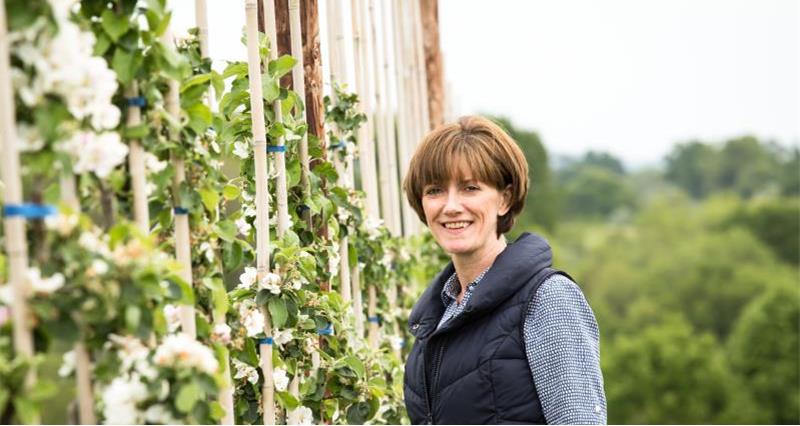NFU Horticulture and Potatoes board chairman, Ali Capper, talks about the progress being made to deliver greater government support for the sector.
Where did January go? It has certainly been a very busy start to the year with a lot of focus on the world of farming post-Brexit. The NFU team are working through a detailed policy right now on what a future Agricultural Policy might look like and the your Horticulture & Potatoes Board have made a significant contribution to that process.
We continue our work to achieve a Seasonal Agricultural Permit Scheme for 2017. We are working through the detail of what this will look like with government and are very keen to get a commitment as soon as possible.
With Theresa May setting out her “Brexit” stall just two weeks ago, and assuming she stays on course to take us out of the single market and customs union, one of the most important jobs now will be to ensure that the crop protection regulation that we adopt in the future is fit for purpose. We know that the UK government cannot simply bring back 1107/2009 – the EU directive for Minor Use crops – and we do not want them too. The work starts now to establish the right plant protection regulatory framework for UK farming.
Today as many of our problems are made in the UK as in the EU. We have met recently with George Eustice, Defra and CRD, and we’ve set out a very clear challenge to ensure that the UK has good availability of plant protection products that suit our climate and our needs.
Specifically we have called for a change in DEFRA policy guidance which would deliver greater flexibility for CRD to make decisions on product approvals. And, importantly, we are calling for changes now, not in two years’ time.
Our immediate requests are two-fold:
Remove any restrictions which prevent the UK automatically applying mutual recognition. The ‘no-data off-label’ mutual recognition of other MS approvals could be re-instigated without compromising current safety standards and would remove the log jam and avoid a rush of Emergency Applications.
Implement Article 40 of 1107/2009 within sensible safety limits. Article 40 enables an approval to be given should an authorisation holder not support an application, and reads: “Where the authorisation holder refuses its consent, the competent authority of the Member State concerned may accept the application, on grounds of public interest”. We look forward to a positive response from DEFRA to our proposals.
